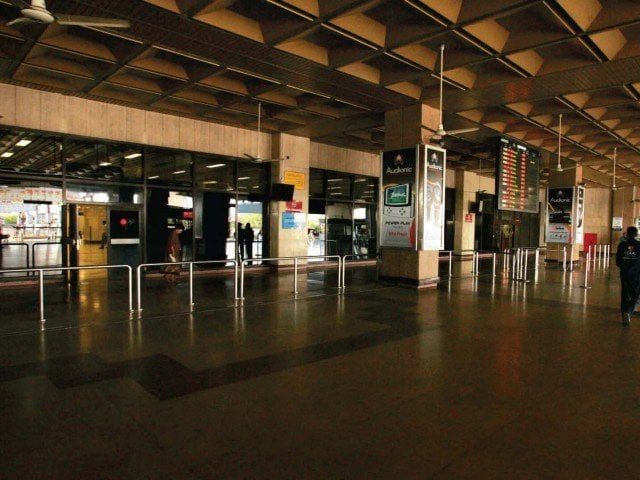Better urban infrastructure can reduce crime
Development projects, coupled with better law enforcement, can make city safe.

PHOTO: ATHAR KHAN/EXPRESS
What follows is the usual: blocking the SIM, registering an FIR, experiencing the sinking feeling at realising what precious personal and professional records are gone forever, tracing contact numbers and the lot. Then of course, the menu is not complete without posting the incident’s news on Facebook!
Receiving mixed reactions, concerns expressed, also relief that no physical harm came, some share similar if not more harrowing experiences.
What of course came, not really as a surprise, was the admonition from very well-meaning friends and family members about what really came over me to leave my laptop, mobile, and whatever else got taken, in my parked and unattended car in Karachi!
This view, if not without any sound basis, makes you wonder about the extent to which a certain fatalism has set in with us about what in well governed cities should not be happening.
Why should I think twice leaving my laptop in my car? Why should I feel a niggling concern when leaving my car unattended at a public place?
When we try to find answers to such questions, then the breakdown in the general law and order and the inability of our law enforcing agencies, either by design or default, or both to effectively address such crimes, comes as the most logical and accepted answer.
However, if we purely look at it within the context of how generally the city is developing physically and how people are adapting to the process, then some worrying realisations are arrived at.
There is now a growing trend to opt for, if it is affordable, to live in gated communities. When new housing schemes are advertised, this aspect of development is presented as a major asset. It is now, in fact, being proven progressively that more investment in vibrant public spaces, in promoting mixed use development, in discouraging urban segregation, a significant symbol of which are gated communities, is paying dividends in terms of making the cities more integrated, safe, vibrant and prosperous.
Improving infrastructure
Just to cite a few examples that people here in Karachi may find easier to relate to are from two cities in Columbia: Bogota and Medellin.
Columbia was long considered one of the most violent and unsafe country in the world, major reason being the notorious drug cartels and the accompanying violence.
Medellin was the base of operations of Pablo Escobar, probably the most well-known drug baron of his time. No more is Medellin considered one of the most violent cities in the world.
While better law enforcement had its impact, it has been the massive investment in improving public spaces and infrastructure that actually changed the city’s fortunes.
Notable among them is the Metrocable project implemented by the city council for providing a complementary transportation service to the city’s ‘metro’, considered the first cable propelled system in the world dedicated to public transport.
This project has linked the least developed and most crime infested areas in the city’s outskirts with the settled localities -stimulating growth of public spaces and overall urban renewal in the city. Similarly, Bogota, under the leadership of mayor Enrique Penalosa, succeeded in developing the world’s most efficient bus rapid transit system - the Trans Milenio - that reversed a decaying urban cycle in the city.
So it is clear that while improved law and order is a fundamental requirement in reversing cycles of urban violence and instability, innovative and wise investments in urban services and infrastructure can have a much greater and long-lasting impact. For how long will Karachi suffer from not having a public transit system? One that can not only offer transit relief but catalyse larger urban renewal - and this is just one area of urban growth. The opportunities are endless.
The writer is an urban planner and runs a non-profit organisation based in Karachi city focusing on urban sustainability issues. He can be reached at fanwar@sustainableinitiatives.org.pk
Published in The Express Tribune, January 11th, 2016.



















COMMENTS
Comments are moderated and generally will be posted if they are on-topic and not abusive.
For more information, please see our Comments FAQ